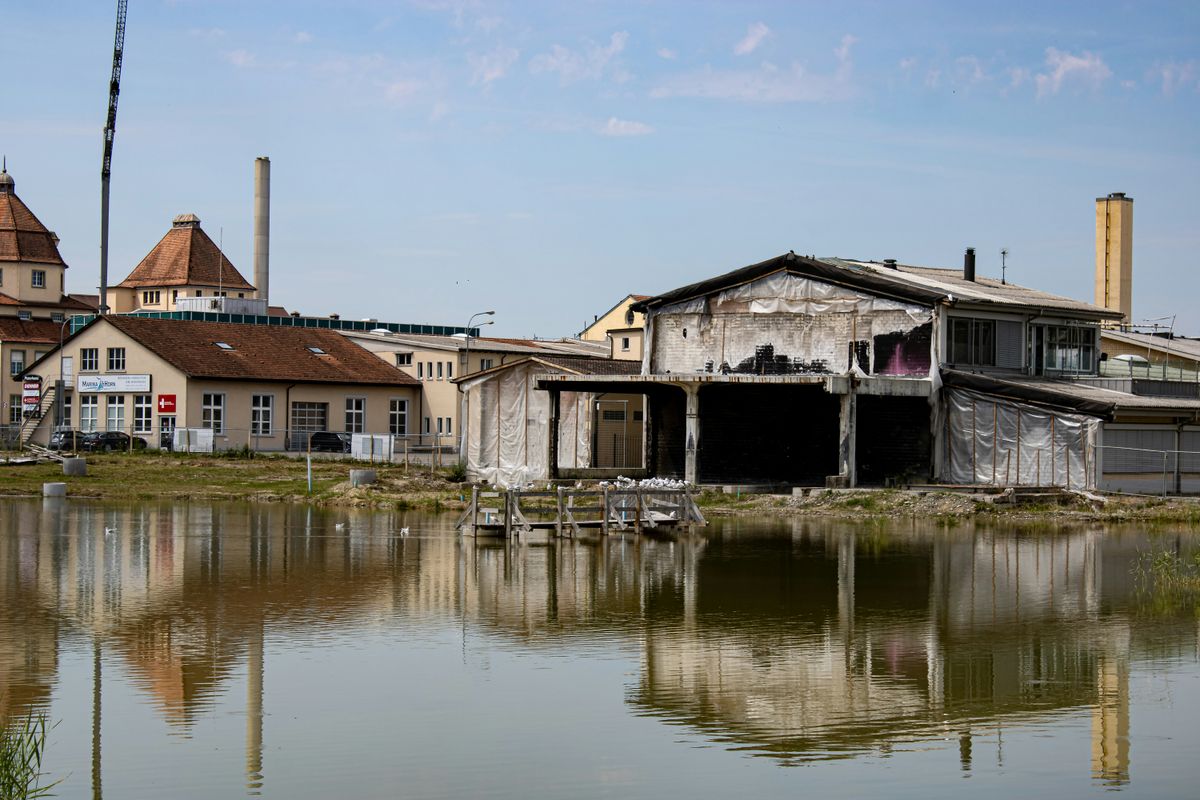The article ‘Portland Debt Collection For Sustainable Goods Wholesalers’ delves into the intricacies of recovering debts within the niche market of sustainable goods in Portland, Oregon. It examines the process, costs, and implications of debt collection, alongside the innovations in sustainable materials and strategic business development for wholesalers. With an emphasis on the unique challenges and opportunities faced by businesses in this sector, the article provides valuable insights into maintaining financial health while supporting environmental sustainability.
Key Takeaways
- Sustainable goods wholesalers in Portland can benefit from a structured 3-phase debt collection process that includes initial recovery attempts, legal intervention, and litigation evaluation.
- The cost of debt collection services varies based on the number of claims and age of accounts, with competitive rates designed to accommodate different scenarios and case outcomes.
- Effective debt collection is crucial for improving cash flow and supporting the recycling ecosystem, ultimately contributing to community programs and statewide environmental initiatives.
- Innovations in sustainable materials, such as Bioplantexx’s agricultural waste textiles and Covation Bio’s Susterra, have significant market implications for product lifecycle and waste reduction.
- Strategic business development involves aligning long-term and short-term goals, expanding redemption programs, and engaging with global partners to drive material innovation and operational growth.
Understanding the Debt Collection Process for Sustainable Goods Wholesalers
Initial Steps in Debt Recovery
The journey to reclaiming outstanding debts begins swiftly for sustainable goods wholesalers. Within 24 hours of account placement, a multi-faceted approach is initiated:
- A series of four letters dispatched via US Mail to the debtor.
- Comprehensive skip-tracing and investigation to secure optimal financial and contact data.
- Persistent outreach through calls, emails, texts, and faxes.
Daily contact attempts mark the first 30 to 60 days, aiming for a prompt resolution. Failure to settle moves the process to the next critical phase involving legal expertise.
Timeliness and thoroughness are the cornerstones of this phase, ensuring that every avenue is explored before escalating the matter. The initial phase is crucial, setting the tone for the recovery effort and establishing the wholesaler’s commitment to recouping what is rightfully theirs.
The Role of Attorneys in Phase Two
When debt recovery escalates, attorneys step in. Their expertise in litigation and negotiation is crucial. They draft demand letters, make calls, and if necessary, prepare for trial. Attorneys aim to resolve disputes efficiently, minimizing the need for court intervention.
- Drafting demand letters on law firm letterhead
- Persistent debtor contact through calls
- Preparing for potential litigation
Attorneys work to avoid litigation, but stand ready to represent clients aggressively in court.
Attorneys understand the unique challenges of the sustainable goods sector, ensuring compliance and advocating for clients’ interests. Their role is pivotal in recovering debts while maintaining business integrity.
Evaluating the Viability of Litigation in Phase Three
When sustainable goods wholesalers reach Phase Three, the decision to litigate hinges on a critical evaluation. Assessing the debtor’s assets and the strength of the case is paramount. If the likelihood of recovery is low, closure is advised, incurring no cost. Conversely, choosing litigation means considering upfront legal costs, which typically range from $600 to $700.
italics Litigation is a serious step, involving court costs and attorney fees. A table below outlines potential expenses:
| Expense Type | Estimated Cost |
|---|---|
| Court Costs | $300 – $400 |
| Filing Fees | $300 – $350 |
Effective communication and strategic steps are key in debt recovery. Legal action may be necessary, but technology offers efficiency. Consider costs and compliance for successful debt collection.
Deciding on litigation requires a balance of potential gain against the risks and costs involved. It’s a strategic choice that can define the future of debt recovery efforts for wholesalers.
Analyzing the Cost and Fee Structure for Debt Collection Services
Rates for Different Numbers of Claims
Debt collection rates for sustainable goods wholesalers are contingent on the volume of claims. The more claims you submit, the lower the percentage you pay on the amount collected. Here’s a quick breakdown:
-
For 1-9 claims:
- Under 1 year old: 30%
- Over 1 year old: 40%
- Under $1000: 50%
- With attorney: 50%
-
For 10+ claims:
- Under 1 year old: 27%
- Over 1 year old: 35%
- Under $1000: 40%
- With attorney: 50%
These tiered rates incentivize bulk submissions, aligning with the efficiency goals of sustainable operations. It’s crucial to understand that rates can vary based on the age and amount of the debt, as well as whether an attorney is involved.
Remember, the goal is to recover funds while minimizing additional costs. Choosing the right number of claims to submit at once can significantly impact your bottom line.
Understanding Upfront Legal Costs
When considering litigation, upfront legal costs are a critical factor. These costs can be a barrier to pursuing a case, but they are necessary for filing fees, court costs, and other legal expenses. The fees typically range from $600 to $700, depending on the jurisdiction of the debtor.
Upfront payments ensure liquidity and mitigate the risk of non-payment, aligning with the operational needs of sustainable goods wholesalers.
Understanding these costs is essential for wholesalers to make informed decisions about debt recovery. Here’s a breakdown of potential upfront costs:
- Court filing fees
- Service of process charges
- Attorney retainer fees
- Miscellaneous court costs (e.g., copying, postage)
It’s important to note that if litigation is unsuccessful, many firms offer a no-cost closure, absolving clients from further financial obligations.
No-Cost Closure of Unsuccessful Cases
In the event of an unsuccessful debt collection attempt, wholesalers can breathe easy with a no-cost closure policy. No hidden fees, no lingering obligations—if the debt remains uncollected, you owe nothing.
- Phase One and Two efforts exhausted? Case closed, at no charge.
- Litigation deemed unviable? Withdraw without worry.
Sustainable goods wholesalers can focus on their core business, assured that unsuccessful debt recovery won’t add to their expenses.
This approach aligns with the ethos of sustainability—minimizing waste, even in financial operations. It’s a transparent, fair practice that respects the wholesaler’s financial health.
The Impact of Effective Debt Collection on Sustainable Goods Operations
Improving Cash Flow for Wholesalers
Efficient debt collection is a critical component for sustainable goods wholesalers to maintain healthy cash flow. Prompt recovery of debts ensures that capital is available for reinvestment and operational costs. Here are key actions to enhance cash flow through effective debt collection:
- Review and revise contracts to minimize risk and clarify payment terms.
- Monitor and improve inventory management to reduce holding costs.
- Utilize financial models to forecast cash flow and prepare for fluctuations.
- Implement proactive inventory controls to identify and resolve discrepancies swiftly.
By optimizing these processes, wholesalers can secure a steady stream of revenue, cushioning against market volatility and ensuring business sustainability.
Understanding the nuances of debt recovery, such as the viability of litigation or the cost structure of collection services, can significantly impact the bottom line. Wholesalers must stay informed on best practices and industry trends, including debt collection guides and the economic climate’s influence on recovery strategies.
Supporting the Recycling Ecosystem in Oregon
Oregon’s commitment to sustainability is exemplified by the Oregon Beverage Recycling Cooperative (OBRC), a linchpin in the state’s recycling ecosystem. OBRC’s full vertical integration ensures the seamless collection, sorting, and processing of over 2 billion containers annually. This not only sustains more than 500 clean economy jobs but also injects over $200 million back into the pockets of Oregonians.
Recycling isn’t just about environmental stewardship; it’s a robust economic engine. The OBRC’s operations support a network of 2,000+ retail stores, 27 redemption centers, and 90+ bag drop locations. The cooperative’s efficiency and effectiveness are critical in maintaining Oregon’s reputation for recycling excellence.
The cooperative’s efforts extend beyond recycling, facilitating over $4 million in annual giving to more than 2,000 charities. This philanthropic impact is a testament to the broader benefits of a well-supported recycling ecosystem.
The OBRC model demonstrates how strategic debt collection techniques can reinforce the recycling infrastructure. By ensuring prompt reimbursements and managing the flow of deposits and container refunds, the OBRC exemplifies a structured recovery system that benefits all stakeholders involved.
Contributions to Nonprofits and Community Programs
Sustainable goods wholesalers in Portland are not just about profit; they’re integral to community upliftment. Facilitating fundraiser and charity programs, these businesses have a significant impact, supporting over 2,000 charities with more than $4 million in annual giving. This philanthropic approach reinforces their commitment to social responsibility.
Community involvement is a cornerstone for these wholesalers. They engage in numerous events and gatherings, fostering relationships that go beyond business transactions. Their financial contributions aid a variety of causes, from environmental initiatives to social welfare programs.
The synergy between sustainable business practices and charitable giving creates a virtuous cycle, enhancing the wholesaler’s role in the community.
Moreover, the support extends to educational programs, with a focus on nutrition and exercise, aligning with the state’s efforts in promoting healthy living. The table below illustrates the types of programs supported:
| Program Type | Description |
|---|---|
| Food Pantries | Assistance for the underprivileged |
| School Nutrition | Healthy meals for students |
| Exercise Programs | Encouraging physical activity |
Innovations in Sustainable Materials and Their Market Implications
Bioplantexx’s Agricultural Waste Textiles
Bioplantexx is revolutionizing the textile industry with its innovative use of agricultural waste. By partnering with farmers in the Philippines, Thailand, and Indonesia, the company transforms discarded pineapple and banana leaves into high-quality fibers. These fibers are then crafted into sustainable materials for the fashion industry, including insoles, linings, and alternative leather textiles.
Embracing the circular economy, Bioplantexx’s approach not only reduces waste but also provides an additional income stream for farmers.
The impact of this innovation extends beyond the environment. It supports local economies and promotes a shift towards more sustainable production practices. Here’s a snapshot of Bioplantexx’s contribution:
- Reduction of landfill waste: Utilizing byproducts that would otherwise be discarded.
- Economic empowerment: Creating new revenue opportunities for agricultural communities.
- Sustainable product development: Offering eco-friendly alternatives to traditional materials.
Covation Bio’s Plant-Based Susterra Product
Covation Bio’s Susterra represents a significant leap forward in the realm of sustainable materials. This plant-based innovation is changing the game for manufacturers seeking eco-friendly alternatives to traditional petroleum-derived products. Susterra’s versatility is showcased in its application across various industries, from footwear to automotive interiors.
- Susterra’s bio-content in running shoe midsoles can reach up to 60%.
- The product is also used in PU dispersion coatings for faux leather, offering a greener solution for fashion accessories.
- An Adidas soccer ball for the 2024 UEFA European Football Championship features Susterra, exemplifying its potential in sports equipment.
Covation Bio’s commitment to sustainability is evident in their selective partnerships, only engaging with companies dedicated to majority bio-based production.
The Portland trade show highlighted the growing interest in sustainable materials, with Covation Bio at the forefront of this movement. Their presence underlines the industry’s shift towards materials that not only reduce waste but also support a circular economy.
AirCarbon’s Role in Decarbonizing Products
AirCarbon emerges as a game-changer in the quest for decarbonization. By integrating AirCarbon into their supply chains, companies can significantly reduce their carbon footprint. This innovative additive, made by feeding methane to oceanic microbes, transforms greenhouse gases into polyhydroxybutyrate (PHB), a valuable material for product manufacturing.
The carbon-negative alloy of AirCarbon can be combined with traditional polymer resins, driving down the carbon impact of products. This aligns with the growing trend of lifecycle assessments and the push for preventing waste from reaching landfills.
Embracing AirCarbon technology not only benefits the environment but also enhances the sustainability profile of products, appealing to the eco-conscious consumer.
The market is taking notice, with exhibitors like Newlight Technologies showcasing the potential of AirCarbon to create carbon-negative products. This aligns with the sustainable market goals discussed at events like COP28, where low-carbon solutions are a focal point.
Strategic Business Development for Sustainable Goods Wholesalers
Long-Term and Short-Term Goal Alignment
Aligning long-term visions with short-term actions is crucial for sustainable goods wholesalers. Strategic planning is the cornerstone, ensuring that daily operations propel the company towards its broader objectives. Financial models and KPIs are developed to support this alignment, with performance dashboards providing real-time insights.
Financial management plays a pivotal role in balancing tactical and strategic needs. The CFO’s agility in shifting focus from immediate financial concerns to overarching financial strategies is essential. Talent development and succession planning are also key to maintaining a robust leadership pipeline that supports both current and future company needs.
By meticulously aligning goals, sustainable goods wholesalers can navigate the complexities of the market while fostering growth and profitability.
Here’s a snapshot of the strategic alignment process:
- Review and adjust financial models regularly.
- Set clear KPIs to track progress towards goals.
- Engage in continuous improvement initiatives.
- Develop talent to sustain financial leadership.
- Utilize performance dashboards for decision-making.
Expansion of BottleDrop Redemption Program
The BottleDrop Redemption Program is pivotal for sustainable goods wholesalers in Oregon. Expanding this program can significantly enhance recycling efforts and contribute to a greener supply chain. With the program processing approximately 60% of Oregon’s Bottle Bill return volume, scaling up could lead to even more impressive results.
Key aspects of the expansion include:
- Strategic real estate procurement for new centers
- Development of express sites for efficient service
- Integration of innovative hardware and software solutions
The expansion aims to streamline operations, from logistics to retail management, ensuring a robust recycling ecosystem.
The program’s success hinges on meticulous planning and execution. It involves managing a complex network of retail centers, logistics, and property maintenance, all while maintaining a commitment to sustainability. The BottleDrop program not only supports the environment but also provides substantial financial returns, with over $200 million paid annually to Oregon consumers.
Engaging with Global Partners for Material Innovation
Forging alliances with global partners is crucial for the evolution of sustainable goods. Collaboration is key to unlocking new potentials in material innovation. By partnering with leaders in biomaterials and next-gen inputs, wholesalers can diversify their offerings and enhance their competitive edge.
Exploring partnerships across continents allows for a cross-pollination of ideas and technologies. This not only drives innovation but also fosters a more resilient supply chain. The integration of bio-based solutions, such as Covation Bio’s Susterra, signifies a shift towards materials that reduce reliance on fossil fuels.
Sustainable design principles are becoming increasingly important. By designing for reuse and recycling, wholesalers contribute to a more sustainable future.
The table below outlines the benefits of engaging with global partners for material innovation:
| Benefit | Description |
|---|---|
| Diversification | Access to a wider range of sustainable materials. |
| Innovation | Exposure to cutting-edge technologies and processes. |
| Sustainability | Adoption of materials with lower environmental impact. |
| Market Expansion | Opportunity to enter new markets with innovative products. |
In conclusion, the strategic engagement with global partners is not just about expanding product lines—it’s about shaping a future where sustainability is woven into the fabric of business.
In the dynamic world of sustainable goods wholesaling, strategic business development is key to staying ahead. Our comprehensive debt collection services are tailored to support wholesalers in maintaining a healthy cash flow and ensuring business continuity. Don’t let unpaid debts hinder your growth. Visit our website to explore our specialized services, from free quotes to efficient debt recovery solutions, and take the first step towards securing your financial stability. Act now and partner with a trusted agency that understands the intricacies of your industry.
Conclusion
In summary, the Portland debt collection process for sustainable goods wholesalers is a structured and strategic approach designed to maximize recovery while minimizing costs. With a three-phase Recovery System, wholesalers have clear options and recommendations at each stage, from initial contact attempts to potential litigation. The system is tailored to the age and size of the claims, ensuring competitive rates and a focus on efficiency. The integration of this process with the innovative and eco-conscious practices of local businesses, such as the Oregon Beverage Recycling Cooperative and the use of biomaterials like AirCarbon, highlights Portland’s commitment to sustainability in all aspects of commerce. As wholesalers navigate the complexities of debt collection, they can take solace in the fact that the process is not only effective but also aligned with the broader values of environmental responsibility and community support.
Frequently Asked Questions
What are the initial steps in the debt recovery process for sustainable goods wholesalers?
The initial steps include sending the first of four letters via US Mail within 24 hours of placing an account, skip-tracing and investigating the debtor to obtain financial and contact information, and making daily attempts to contact the debtor through various means such as phone calls, emails, and faxes for the first 30 to 60 days.
What happens in Phase Two of the debt collection process?
In Phase Two, the case is forwarded to an affiliated attorney within the debtor’s jurisdiction. The attorney sends letters on law firm letterhead demanding payment and attempts to contact the debtor via telephone. If these attempts fail, a recommendation for the next step is communicated to the creditor.
What are my options if litigation is recommended in Phase Three?
If litigation is recommended, you can choose not to proceed and either withdraw the claim, owing nothing, or allow standard collection activity to continue. If you decide to proceed with legal action, you will need to pay upfront legal costs, which typically range from $600 to $700.
How are the rates structured for debt collection services?
Rates depend on the number of claims and the age and amount of the accounts. For 1-9 claims, rates vary from 30% to 50% of the amount collected. For 10 or more claims, rates range from 27% to 50% of the amount collected.
How does effective debt collection impact the operations of sustainable goods wholesalers?
Effective debt collection improves cash flow for wholesalers, supports the recycling ecosystem in Oregon, and contributes to nonprofits and community programs through funds raised from recycling activities.
What are some recent innovations in sustainable materials and their market implications?
Innovations include Bioplantexx’s agricultural waste textiles, Covation Bio’s plant-based Susterra product, and AirCarbon’s additive for decarbonizing products. These materials offer alternatives to traditional, petroleum-derived materials and contribute to a circular economy.





